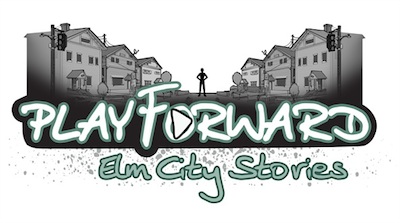 Children who played iPad-based HIV prevention game PlayForward: Elm City Stories knew more about HIV risk than those that played other video games, according to an oral abstract on a randomized control trial of 198 adolescents presented at the AIDS conference this week. The mean age of children in this trial was 13.
Children who played iPad-based HIV prevention game PlayForward: Elm City Stories knew more about HIV risk than those that played other video games, according to an oral abstract on a randomized control trial of 198 adolescents presented at the AIDS conference this week. The mean age of children in this trial was 13.
The NIH-funded video game was developed by Yale University Associate Research Scientist Dr. Kim Hieftje and Associate Professor of Medicine Dr. Lynn Fiellin.
"We know there’s this optimal window in which we think we can really inform and engage adolescents before they start having sex,” Hieftje said at Games for Health last year. “So we really wanted to focus on that window right before they start engaging in sexual activity so we are looking at ages 10 to 14. This age is really active in playing video games as well.”
PlayForward is a role-playing game in which children build avatars that they use to play the game over a period of time. This avatar goes through a series of mini games within an overarching storyline of dealing with daily social problems of adolescent youth. As users move through different parts of the game, they make decisions about unprotected sex and drug and alcohol abuse, according to a post in the Yale Daily News. The game can track whether the children are making the right choices and provides them with new insights into how their decisions changed their lives. They can even go back and see how making a different decision would have affected their avatar differently.
Adolescents in the trial were given a quiz on their HIV knowledge before playing the game, six weeks into gameplay, and three months into gameplay. At the time of the initial survey, there wasn't a significant different between the participants' HIV risk-related knowledge. By the end of the program, the students who were playing PlayForward scored higher on their quiz than those in the control group.
According to a report from MedPage Today, in a presentation on the study, Fiellin said that adolescents also enjoyed playing the game. Around 66 percent talked about the game with their friends after playing it, over 80 percent liked the look of the game, which was designed with graphic novel style elements, 75 percent said they found the game challenging, 88 percent said they felt responsible for the choices they made for the avatar during gameplay, and 78 percent said they would make similar choices to their avatar in real life.
Since developing this game, the researchers are also developing two other health-related games. One, called PlayitSafe, aims to to reduce HIV risk behaviors in young black women and the other, called smokeSCREEN aims to prevent adolescents between the ages of 11 and 14 from smoking cigarettes and marijuana.














